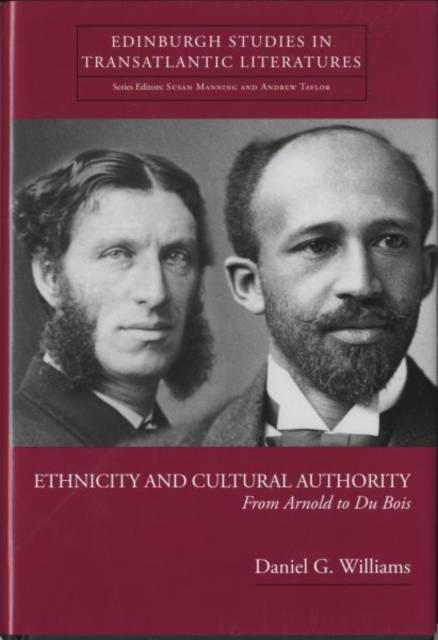
- Afhalen na 1 uur in een winkel met voorraad
- Gratis thuislevering in België vanaf € 30
- Ruim aanbod met 7 miljoen producten
- Afhalen na 1 uur in een winkel met voorraad
- Gratis thuislevering in België vanaf € 30
- Ruim aanbod met 7 miljoen producten
Zoeken
Omschrijving
Longlisted for the Wales Book of the Year 2007 Writing in 1903, W. E. B. Du Bois suggested that the goal for the African-American was 'to be a co-worker in the kingdom of culture'.He was evoking 'culture' as a solution to the divisions within society, thereby adopting, in a very different context, an idea that had been influentially expressed by Matthew Arnold in the 1860s. Du Bois questioned the assumed universality of this concept by asking who, ultimately, is allowed into the 'kingdom of culture'? How does one come to speak from a position of cultural authority?This book adopts a transatlantic approach to explore these questions. It centres on four Victorian 'men of letters' - Matthew Arnold, William Dean Howells, W. B. Yeats and W. E. B. Du Bois - who drew on notions of ethnicity as a basis from which to assert their cultural authority. In comparative close readings of these figures Daniel Williams addresses several key areas of contemporary literary and cultural debate. The book questions the notion of 'the West' as it appears and re-appears in the formulations of postcolonial theory, challenges the widespread tendency to divide nationalism into 'civic' and 'ethnic' forms, and forces its readers to reconsider what they mean when they talk about 'culture', 'identity' and 'national literature'. Key Features*Offers a substantial, innovative intervention in transatlantic debates over race and ethnicity*Uses 4 intriguing authors to explore issues of national identity, racial purity and the use of literature as a marker of 'cultural capital'*A unique focus on Celtic identity in a transatlantic context*Sets up a dialogue between writers who believe in national identity and those who believe in cultural distinctiveness
Specificaties
Betrokkenen
- Auteur(s):
- Uitgeverij:
Inhoud
- Aantal bladzijden:
- 272
- Taal:
- Engels
- Reeks:
Eigenschappen
- Productcode (EAN):
- 9780748622054
- Verschijningsdatum:
- 8/12/2005
- Uitvoering:
- Hardcover
- Formaat:
- Genaaid
- Afmetingen:
- 164 mm x 235 mm
- Gewicht:
- 566 g

Alleen bij Standaard Boekhandel
+ 451 punten op je klantenkaart van Standaard Boekhandel
Beoordelingen
We publiceren alleen reviews die voldoen aan de voorwaarden voor reviews. Bekijk onze voorwaarden voor reviews.







